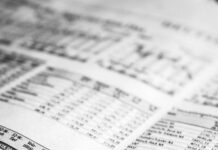If you’re diving into the exciting world of forex trading, you’ve probably come across the term NFA compliance in Forex and wondered, what does it really mean? Understanding NFA compliance requirements is absolutely crucial for anyone looking to trade safely and legally in the United States. But why is this regulatory framework such a big deal, and how does it protect you as a trader? This essential guide to NFA compliance will unravel everything you need to know to stay safe while maximizing your trading potential.
Forex trading can be highly profitable, but it’s also riddled with risks and scams. That’s where the National Futures Association (NFA) steps in, acting as a watchdog to ensure brokers and traders follow the strictest standards. Without proper NFA compliance, you might unknowingly fall prey to unregulated brokers or fraudulent schemes, resulting in massive financial losses. So, what exactly does it take to be NFA compliant in the forex market, and how can you verify if your broker meets these standards?
In this article, we’ll explore the key components of NFA compliance in Forex, including registration, reporting, and risk management protocols. Plus, we’ll share insider tips on how to identify trustworthy brokers and avoid common pitfalls. Curious about the secrets to safe forex trading under NFA regulations? Stick with us as we break down complex rules into simple, actionable advice that every trader must know before entering the market. Don’t risk your hard-earned money—learn how NFA compliance can be your ultimate shield in the fast-paced forex world!
Understanding NFA Compliance in Forex: What Every Trader Must Know to Stay Protected
Understanding NFA Compliance in Forex: What Every Trader Must Know to Stay Protected
Forex trading is one of the most dynamic and fast-paced markets in the world, attracting millions of traders daily. But with high rewards come high risks. Many traders, especially beginners, often overlook the importance of regulatory compliance, which can expose them to scams or unfair trading practices. One of the most critical regulatory bodies in the United States for forex traders is the National Futures Association (NFA). If you are trading forex in New York or anywhere else in the US, knowing about NFA compliance is not just useful—it is essential for protecting your investments. But what is NFA compliance in forex? Let’s dive deep into this topic and explain what every trader must know to stay safe in this volatile market.
What Is NFA Compliance in Forex?
NFA compliance refers to the adherence to rules and regulations set forth by the National Futures Association, a self-regulatory organization authorized by the Commodity Futures Trading Commission (CFTC). The NFA oversees the forex, futures, and derivatives markets within the United States, ensuring that member firms and individuals operate fairly and transparently.
In simple terms, if a forex broker or trading firm is NFA-compliant, it means they follow strict guidelines designed to protect traders from fraud, misrepresentation, and unethical practices. These rules govern everything from how brokers manage client funds to the way they advertise their services.
Important points about NFA compliance:
- NFA registration is mandatory for forex brokers operating in the US.
- NFA enforces capital requirements, ensuring brokers have enough funds to cover client positions.
- The organization monitors brokers for fair dealing and proper disclosure.
- Member firms must submit regular reports and undergo audits.
- There are strict rules about advertising and marketing to prevent misleading claims.
Historical Context: Why NFA Compliance Matters in Forex
Before the NFA started regulating forex, the US market was quite chaotic with many unregulated brokers offering services without accountability. Traders often fell victims to scams, including broker fraud, manipulation of prices, and unauthorized trading.
The NFA was established in 1982 but began focusing on forex regulation in the early 2000s when this market grew rapidly. The organization introduced a framework that required brokers to register, disclose their financials, and adhere to ethical business practices. This move greatly improved transparency and trader confidence.
Without NFA compliance, traders might face:
- Frozen funds with no recourse.
- Manipulated prices or slippage without explanation.
- Brokers disappearing or refusing withdrawals.
- Lack of dispute resolution channels.
How to Check If Your Broker Is NFA Compliant
If you are unsure whether a forex broker is NFA-compliant, you can verify it easily by using the NFA’s online database called BASIC (Background Affiliation Status Information Center). Here’s a quick guide:
- Visit the NFA website (nfa.futures.org).
- Access the BASIC database.
- Enter the broker’s name or registration number.
- Check the broker’s status and any disciplinary history.
Always ensure that your broker is registered before depositing money. Being NFA-compliant doesn’t guarantee profits, but it significantly reduces the risk of falling into scams.
Essential Rules for NFA-Compliant Forex Brokers
NFA compliance includes a list of essential rules forex brokers must follow. Here are some of them:
- Segregation of Client Funds: Brokers must keep client money separate from their operational funds.
- Minimum Capital Requirements: Firms need to maintain a certain amount of capital to ensure stability.
- No Requotes or Manipulated Spreads: Brokers cannot alter prices unfairly or refuse trades.
- Disclosure of Risks: Clear communication about the risks involved in forex trading.
- Record Keeping: Maintaining detailed records of all transactions and communications.
- Arbitration Clause: Brokers and clients must agree to resolve disputes through the NFA arbitration process.
Comparison: NFA Compliance vs Other Regulatory Bodies
Forex regulation varies globally. Here’s a simple comparison between NFA and some other popular regulatory authorities:
| Regulatory Body | Region | Capital Requirements | Client Fund Protection | Dispute Resolution | Advertising Rules |
|---|---|---|---|---|---|
| NFA | United States | High | Segregation required | Mandatory arbitration | Strict and monitored |
| FCA | United Kingdom | Moderate | Segregation required | Financial Ombudsman | Strict but flexible |
| ASIC | Australia | Moderate | Client money held separately | Mediation available | Moderate restrictions |
| CySEC | Cyprus / EU | Lower | Client money protected | Arbitration available | Moderate, less strict |
NFA is considered one of the strictest regulators, focusing heavily on protecting retail traders. This is why many US forex brokers proudly advertise their NFA compliance status.
Practical Tips for Traders to Stay NFA Compliant
Top 5 Key Requirements of NFA Compliance for Forex Brokers Explained
Navigating the forex market can be tricky, especially when you’re dealing with brokers. One of the most important things traders in the United States should know about is NFA compliance. What is NFA compliance in forex? This question pops up often, and understanding it well will help you stay safe and avoid scams. The National Futures Association (NFA) is the self-regulatory organization responsible for overseeing forex brokers and futures markets in the US. It enforces rules that protect traders and maintain fair practices. Without proper NFA compliance, a broker may not be trustworthy or follow the law, which could lead to financial losses or legal trouble.
What Is NFA Compliance in Forex?
NFA compliance in forex means that a broker abides by the rules and regulations set forth by the National Futures Association. The NFA was established in 1982 to self-regulate the futures market but has since expanded its scope to include forex trading. Brokers who want to operate legally in the US must register with the NFA and meet its requirements. This involves transparency about business practices, financial stability, and ethical conduct.
Being NFA compliant means a forex broker has undergone rigorous checks and continues to follow strict guidelines designed to protect their clients. For example, the NFA requires brokers to segregate client funds from company funds, so your money is never mixed with the broker’s operating capital. This reduces the risk of losing your deposit if the broker goes bankrupt.
Top 5 Key Requirements of NFA Compliance for Forex Brokers Explained
It’s not just about registration; there are several critical rules that forex brokers must follow to maintain NFA compliance. Here are the top 5 key requirements you should know:
Registration and Disclosure
Every forex broker operating in the US must register with the NFA and the Commodity Futures Trading Commission (CFTC). This includes providing detailed information about ownership, business operations, and financial status. Brokers also must disclose any disciplinary history or legal issues. This transparency helps traders make informed decisions and avoid fraudulent firms.
Capital Requirements
Brokers need to maintain a minimum net capital, usually set by the NFA, to ensure they have enough financial resources to cover client positions and operational expenses. This protects traders from brokers who might take on excessive risk or become insolvent. The required capital amount can vary but typically ranges from hundreds of thousands to millions of dollars depending on the broker’s activities.
Segregation of Client Funds
One of the most important protections for traders is that client funds must be kept separate from the broker’s own money. This segregation means even if the broker faces financial difficulties, your funds remain safe and are not used for company debts or liabilities. It’s a crucial safeguard that reduces the risk of losing your investment due to broker mismanagement.
Reporting and Recordkeeping
NFA rules require brokers to keep detailed records of all transactions, client communications, and financial activities. They must also submit regular reports to the NFA to demonstrate ongoing compliance. This makes it easier to detect suspicious activities and enforce regulations. Traders benefit because it promotes accountability and transparency within the industry.
Anti-Money Laundering (AML) and Know Your Customer (KYC) Policies
Forex brokers must implement strict AML and KYC policies to prevent illegal activities such as money laundering, terrorist financing, or fraud. This involves verifying the identity of clients, monitoring transactions for unusual behavior, and reporting suspicious activities to authorities. These measures protect the integrity of the forex market and help maintain a safe trading environment.
Why NFA Compliance Matters for Forex Traders in New York and Beyond
If you’re trading forex in New York or anywhere else in the US, choosing an NFA-compliant broker is essential. Without compliance, brokers might not follow ethical standards, putting your money at risk. In the past, unregulated or offshore brokers have been involved in scams and manipulative practices, causing significant losses for traders.
NFA compliance also ensures brokers provide fair pricing, transparent order execution, and proper handling of client complaints. For example, if you encounter a dispute, the NFA has processes for arbitration and mediation to resolve issues fairly. This adds an extra layer of protection compared to dealing with unregulated entities.
Comparing NFA Compliance to Other Regulatory Bodies
Different countries have their own forex regulatory agencies, but the NFA is unique because it combines self-regulation with federal oversight by the CFTC. Here’s a quick comparison to help understand how NFA stands among others:
- NFA (USA): Strict capital requirements, mandatory segregation of funds, detailed reporting, and strong enforcement powers.
- FCA (UK): Similar strict rules, but focused more on investor protection and market integrity in the UK market.
- ASIC (Australia): Regulates brokers with strong emphasis on transparency and financial solvency.
- CySEC (Cyprus): Known for being more lenient,
How Does NFA Compliance Impact Your Forex Trading Safety and Security?
Navigating the world of forex trading can feels overwhelming, especially for newcomers. One of the most critical aspects that often gets overlooked is regulatory compliance, particularly the role of the NFA in the US forex market. Many wonder, “How does NFA compliance impact your forex trading safety and security?” or “What is NFA compliance in forex?” This article dives into these questions, providing an essential guide to keep your trading experience secure and transparent.
What Is NFA Compliance in Forex?
NFA stands for the National Futures Association, a self-regulatory organization created in 1982 to oversee the futures and derivatives markets in the United States. In the context of forex trading, NFA compliance means that brokers and trading firms follow strict rules and standards designed to protect traders from fraud, manipulation, and other unethical practices.
Unlike some other countries where forex regulation is fragmented, the NFA serves as a central body which enforces rules that promote transparency, fairness, and integrity in the forex market. It works closely with the Commodity Futures Trading Commission (CFTC), the federal agency that regulates futures and options markets.
Here’s a quick overview of what NFA compliance usually involves:
- Registration of forex brokers and firms with the NFA.
- Adherence to strict capital requirements to ensure firms have enough funds.
- Regular reporting and audits to verify proper operations.
- Implementation of customer protection rules, like segregating client funds.
- Enforcing rules against fraudulent or manipulative behavior.
How NFA Compliance Impacts Your Forex Trading Safety and Security
Trading forex without regulations can feels like walking a tightrope without a safety net. NFA compliance adds several layers of protection that helps traders avoid scams and other pitfalls. Here’s why it matters:
Protection of Client Funds
Brokers under NFA rules must keep client funds separate from their own operational money. This segregation means that even if the broker faces financial difficulties, your money should be safe and accessible.Transparency in Operations
NFA members must provide clear disclosures about fees, leverage, and risks. This transparency allows traders to make informed decisions instead of being blindsided by hidden costs or unexpected margin calls.Fair Trading Practices
The NFA enforces rules against market manipulation, unauthorized trading, and misleading advertising. This creates a more level playing field where traders have confidence their orders are executed fairly.Dispute Resolution Mechanisms
If a conflict arises between a trader and an NFA-registered broker, the NFA offers mediation and arbitration services, which can helps resolve issues without expensive lawsuits.Ongoing Monitoring and Compliance Checks
Compliance isn’t a one-time thing. The NFA continually monitors its members through audits and investigations, helping to catch problems early before they escalate.
What Happens If a Broker Is Not NFA Compliant?
Forex brokers operating outside NFA rules might offers attractive incentives or higher leverage, but they come with increased risks. Some common issues traders face with non-compliant brokers include:
- Lack of segregation of funds, increasing the chance of losing money if the broker goes bust.
- Limited or no recourse if disputes arise.
- Potential exposure to fraudulent practices or unfair trading conditions.
- Difficulty verifying the broker’s financial health or business practices.
In short, while non-NFA brokers might seems tempting for some traders, the lack of regulation often outweighs the benefits, especially for those new to forex trading.
Historical Context: Why NFA Compliance Became Important
Before the 2000s, forex trading was largely unregulated in the US, leading to a rise in scams and fraudulent brokers targeting unsuspecting traders. The Commodity Futures Modernization Act of 2000 gave the CFTC authority over forex markets, and the NFA stepped up to enforce these rules.
Since then, NFA compliance has become a benchmark for credibility in the industry. Many brokers seeking to operate in the US market must meet these standards, which have gradually increased in stringency following financial crises and market abuses.
Practical Tips To Ensure Your Broker Is NFA Compliant
If you’re serious about trading forex safely, verifying your broker’s NFA status is crucial. Here’s how you can do it:
- Visit the official NFA website and use their “Background Affiliation Status Information Center” (BASIC) tool.
- Check if the broker’s registration number is valid and up-to-date.
- Look for any disciplinary actions or customer complaints on record.
- Review the broker’s website carefully for disclosures about their regulatory status.
Comparison: NFA Compliance vs Other Forex Regulatory Bodies
Although NFA is a leading authority in the US, other countries have their own regulatory agencies, such as:
| Regulatory Body | Region | Key Features | Client Protection Level |
|---|---|---|---|
| NFA | United States | Strict capital requirements, audits |
Step-by-Step Guide to Ensuring Your Forex Broker Meets NFA Compliance Standards
Navigating the Forex market can be exciting but also risky, especially if you don’t know if your broker is trustworthy or not. One of the most important things any trader in New York or around the world should know is about NFA compliance. This term gets thrown around a lot in Forex circles, but what exactly is it? And how you can make sure your Forex broker meets those standards to keep your investments safe? Let’s break this down with a step-by-step guide that helps you understand and verify NFA compliance when choosing a Forex broker.
What Is NFA Compliance in Forex?
NFA stands for National Futures Association. It is a self-regulatory organization for the U.S. derivatives industry, including Forex trading. Simply put, NFA compliance means that a Forex broker follows rules and regulations set by the NFA to protect traders and maintain market integrity. These rules cover things like financial requirements, business conduct, reporting obligations, and dispute resolution processes.
The NFA was established in 1982, but its role in Forex became significantly important after the Commodity Futures Modernization Act of 2000. This law extended regulatory oversight to Forex trading, which before was less regulated in the U.S. Because of this, Forex brokers who want to operate legally within the U.S. must register with the NFA and comply with its standards.
Why NFA Compliance Matters for Forex Traders
Forex market can be a wild place. Many scams and fraudulent brokers exist, especially online. NFA compliance serves as a safety net for traders by ensuring brokers:
- Maintain adequate financial reserves
- Behave ethically and transparently
- Submit to audits and regular reporting
- Protect customer funds through segregation
- Provide fair dispute resolution mechanisms
Without these protections, traders risk losing money due to broker insolvency, manipulation, or outright fraud. That’s why knowing if your broker is NFA registered is a crucial step.
Step-by-Step Guide to Ensuring Your Forex Broker Meets NFA Compliance Standards
Below is a practical approach that every trader can follow to verify NFA compliance:
Check Broker Registration on the NFA Website
Visit the official NFA website and use their “Basic Forex Broker Search.” You can search by broker’s name or registration number. If your broker is not listed, it means they are not NFA registered, which raises a big red flag.Verify the Broker’s Background and History
Once you find the broker on the site, review their background information. Look for any disciplinary history or enforcement actions taken by the NFA. This info helps you assess how trustworthy the broker is.Confirm the Broker’s Regulatory Status
Brokers can be registered as Forex Dealer Members (FDM) or Introducing Brokers (IB). FDMs are fully regulated and hold higher standards. IBs usually refer clients to FDMs and have fewer obligations. Knowing the type helps you understand the level of protection.Review the Broker’s Financial Statements
NFA requires brokers to submit financial statements regularly. Some brokers publish these reports on their websites or provide them upon request. Checking these statements tells you if the broker is financially stable or if they are taking risks with client funds.Check for Segregation of Client Funds
One major NFA rule is that brokers must keep client funds separate from their own operating capital. This means your money is safer if the broker faces financial trouble. You can ask the broker directly about this or find it in their compliance documents.Look for Clear and Transparent Disclosures
Brokers must provide clear information about fees, spreads, margin requirements, and other trading conditions. Vague or hidden terms could indicate non-compliance or unethical practices.Confirm the Broker Has a Dispute Resolution Process
NFA registered brokers must have a formal process to handle complaints and disputes. This is a crucial protection if you ever face problems with your trades or withdrawals.
What Happens If a Broker Is Not NFA Compliant?
If a broker is not NFA compliant, it usually means they operate outside U.S. regulations. This does not always mean they are fraudulent, but it does remove important protections for traders. Non-compliant brokers might:
- Offer leverage levels not allowed in the U.S.
- Avoid audits or financial disclosures
- Fail to segregate client funds properly
- Be harder to pursue legally in case of disputes
Trading with such brokers increases the risk of losing your investment or facing legal difficulties.
Comparison: NFA Compliance vs Other Regulatory Bodies
| Regulatory Body | Jurisdiction | Key Features | Forex Leverage Limits | Protection Level |
|---|---|---|---|---|
| NFA | United States | Strict financial, reporting rules | Max 50:1 for major pairs | High, with strong enforcement |
| FCA ( |
Why NFA Compliance Is Crucial for Forex Traders: Avoid Scams and Regulatory Risks
Navigating the complex world of forex trading can be overwhelming, especially for traders based in the United States. One critical aspect that often gets overlooked is NFA compliance. Many forex traders don’t really understand what NFA compliance means, why it’s important, and how failing to adhere to it can expose them to scams and regulatory troubles. This article aims to clear up those confusions by explaining what NFA compliance is in forex, why it’s crucial, and how traders can protect themselves by staying within the rules set by this regulatory body.
What Is NFA Compliance in Forex?
The National Futures Association (NFA) is a self-regulatory organization in the United States that oversees derivatives markets, including forex trading. NFA compliance refers to the requirement that forex brokers and firms must meet specific regulatory standards set by the NFA to operate legally within the U.S. These standards include registration, reporting, financial requirements, and ethical business conduct.
In simple terms, if a forex broker is NFA compliant, it means they have been vetted and approved by the NFA to conduct trading activities in a transparent and lawful manner. This certification is essential because the forex market is largely unregulated globally, and the U.S. has one of the most strict and well-defined regulatory frameworks to protect investors.
Why NFA Compliance Matters for Forex Traders
Many forex traders don’t realize how important it is to trade only with NFA-registered brokers. Here is why:
- Protection Against Scams: The forex industry is unfortunately rife with scams and fraudulent brokers. NFA compliance helps weed out bad actors, as brokers need to follow strict rules about how they handle clients’ money and disclose risks.
- Regulatory Oversight: NFA ensures brokers maintain transparency by requiring regular audits and disclosures. This oversight reduces chances that brokers engage in unethical practices like price manipulation or withholding withdrawals.
- Dispute Resolution: If a trader encounters issues with an NFA-registered broker, they can file complaints with the NFA. The organization provides mechanisms to address disputes fairly, something not available with unregulated brokers.
- Financial Safeguards: NFA compliance often means brokers maintain minimum capital requirements. This financial stability lowers the risk of brokers going bankrupt and leaving traders without access to their funds.
Historical Background and Evolution of NFA Compliance
The NFA was established in 1982 to regulate the U.S. derivatives markets, including futures and forex. Before the formation of NFA, the industry was fragmented with little oversight, leading to widespread fraud and market manipulation.
Since forex trading expanded rapidly in the 2000s, the NFA began enforcing tighter regulations on forex brokers operating in the U.S., including mandatory registration, disclosure requirements, and adherence to the Commodity Futures Trading Commission (CFTC) rules. These regulations aimed to bring more transparency and fairness to the forex market and protect retail traders from getting scammed.
Key Requirements for NFA Compliance in Forex
Traders should know what NFA expects from brokers to understand the level of protection they get. The main requirements include:
- Registration with the NFA and CFTC.
- Maintaining minimum net capital (usually several million dollars).
- Implementing strict anti-money laundering (AML) policies.
- Providing regular financial reports and disclosures to the NFA.
- Segregating client funds from company funds to prevent misuse.
- Disclosing material risks and conflicts of interest clearly.
- Submitting to periodic audits and examinations.
How To Check If Your Broker Is NFA Compliant
If you are wondering whether your broker follows NFA rules, here’s a simple checklist you can follow:
- Visit the official NFA website (www.nfa.futures.org).
- Use the ‘Basic Match’ tool to search the broker’s name or registration number.
- Confirm their registration status and any disciplinary history.
- Look for the broker’s NFA ID number on their website or documentation.
- Ensure the broker provides clear disclosures about their regulatory status.
Practical Examples: NFA Compliance vs. Non-Compliance
Let’s consider two scenarios:
| Aspect | NFA Compliant Broker | Non-NFA Broker |
|---|---|---|
| Client Fund Protection | Segregated accounts, regular audits | Funds pooled with company’s money |
| Transparency | Full disclosure of risks and fees | Hidden fees, unclear terms |
| Regulatory Oversight | Subject to periodic inspections | No regulatory supervision |
| Dispute Resolution | NFA complaint process available | No formal resolution mechanisms |
| Financial Stability | Minimum capital requirements enforced | No financial safeguards |
Choosing an NFA-compliant broker offers much more peace of mind and safety compared to unregulated firms.
Tips To Stay Safe and Compliant as a Forex Trader
- Always verify the regulatory status before opening an account.
- Read the broker’s terms and conditions
Conclusion
In conclusion, NFA compliance in Forex trading is essential for maintaining transparency, security, and fairness within the financial markets. By adhering to the stringent regulations set forth by the National Futures Association, Forex brokers and traders ensure a level playing field that protects investors from fraudulent activities and promotes ethical business practices. Key aspects such as registration, capital requirements, reporting obligations, and adherence to trading rules all contribute to a robust regulatory framework that builds trust and confidence among market participants. For traders, understanding and prioritizing NFA-compliant brokers can significantly reduce risks and enhance the overall trading experience. As the Forex market continues to evolve, staying informed about compliance requirements remains crucial for both brokers and traders alike. If you’re considering entering the Forex market, make NFA compliance a top criterion in your broker selection process to safeguard your investments and trade with peace of mind.




















